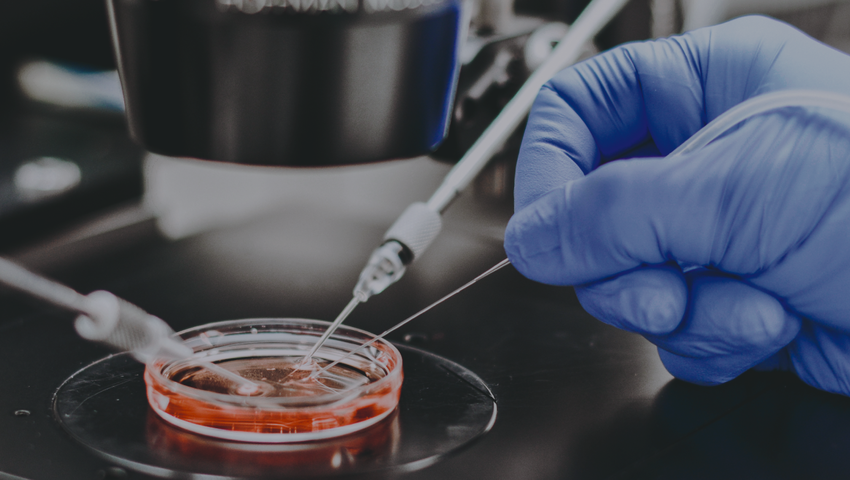
Small Caps
“Being listed is a sign of a serious player”
French small cap genOway’s market performance
has been turbulent since its IPO. Its CEO and founder Alexandre Fraichard explains.
By Bertrand Beauté
"COVID-19" is still a magic word in the stock exchange world. On 25 October, genOway shares shot up by almost 20%. Why? The Lyon-based company announced it had developed the first mouse to be genetically modified to reproduce COVID-19 symptoms (see Swissquote Magazine, September 2020 issue). This transgenic rodent will allow COVID-19 treatments and vaccines to be tested, and will also give greater understanding of its mechanisms. But since this technological breakthrough, genOway’s share price has fallen again. Another up and down in its tumultuous history. First listed in May 2007 at €4.96, genOway then entered a downwards spiral, ultimately becoming a penny stock priced at less than a euro at its lowest in 2009. In 2020, the company experienced a strong revival with the pandemic. But Alexandre Fraichard, the company’s founder and CEO, says that genOway’s share price movements don’t reflect business reality. Find out more in this interview.
Why did you decide to go public in 2007?Companies generally go public to raise money. But we didn’t need money. We took the company public first and foremost as a matter of image. For our clients, who include pharmaceutical companies such as Novartis, Pfizer and BMS, being listed is a sign of a serious player. Rightly or wrongly, listed companies are seen as sustainable.
How did your IPO go?We launched our IPO in 2007, at a time when there was a real appetite for the biotech sector – and so our IPO went well. But the enthusiasm for biotech waned in 2008 and the following decade was much more difficult. Lots of the investors we met basically told us: “We love your project, but you’re too small. We don’t invest in companies with a capitalisation of less than €100 million.” That’s the real problem: if you don’t exceed the €100 million capitalisation threshold, no-one’s interested in you. No analyst, for example, tracks our value. From time to time, we pay for sponsored research, but it doesn’t bring us much. So the majority of the time, there is no financial research on genOway.
Has the pandemic – which highlighted the importance of your work – changed things for you?No. We still don’t have any analysts tracking us. However, the pandemic reminded us of a constant: all it takes for our share price to rocket is for someone to buy a few hundred thousand euros of our shares – and vice versa. The slightest negative press article (for example suggestions of the end of animal testing) or positive press article (such as on the need for mice to test COVID vaccines) and our share price drops or jumps. There’s a disconnect between the company’s business and its stock market price. This means we have to be very cautious with our communications. When we announced in October that we had designed genetically modified mice to develop COVID-19, for example, we emphasised the fact that it was a research tool. It didn’t merit a tenfold increase in our share price. We’re not BioNTech, our turnover isn’t going to go from a few million to a few billion thanks to COVID. This cautiousness is important because when people don’t understand information about our company, the share price moves very strongly.
How do you adapt to market fluctuations?We have to maintain a medium- to long-term vision to avoid having to raise capital on the exchange. This allows us to manage the ups and downs in the share price. At the start, when we’d just gone public, I had an extremely rational view of the market and I found it hard to deal with the fluctuations. But in reality, we’re always too small to have a real stock market presence, for people to be buying and selling shares without the price jumping around. Now, whether the share price is €3 or €4, it doesn’t keep me up at night. Only growth in sales and profitability matters.
Do you regret going public?Absolutely not. I’m very positive about being listed. In addition to the credibility it brings us, it probably saved us. After the 2007 IPO, one of our historic shareholders decided to close their venture capital fund. They took advantage of our listing to divest from the it wouldn’t have been so easy for the shareholder to leave us. We might have had to sell the company. I’m still grateful for that. company quickly and sell their shares. That decision floored genOway’s share price for years, but if we hadn’t been listed, maybe
